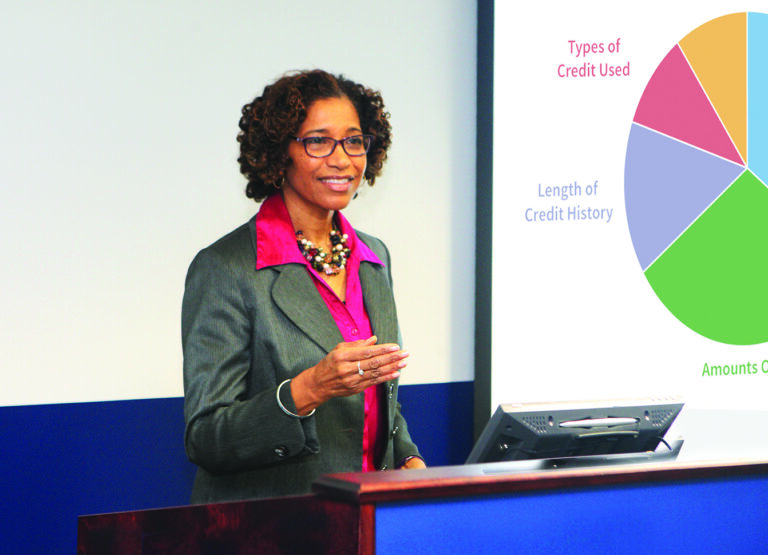Career Examples
- Cooperative Extension
- College Education
- Financial Aid
- Campus Financial Literacy
- Money Management Center
- Financial Wellness Centers

Career Qualifications
- Financial Aid Representative level
- Bachelor’s degree preferred
- 2-5 years experience
- Coach/Counselor level (varies depending upon the institution)
- Associate’s – Bachelor’s degree
- 6 months experience
- Administrative/Director/Associate Director level (varies depending upon the institution)
How to get started (New)
- Volunteer or work at institutions: Financial Aid Office, Student Financial Counseling Center, Financial Literacy Program
- Volunteer to work with area high school students in personal finance classes
- Volunteer at local non-profits providing financial coaching/education
How to get started (Career-Changer)
- Leverage work history in a personal finance adjacent field (e.g. banking, insurance, counseling, education, accounting, finance) to apply to a financial coaching/wellness center at a university
- Build on prior career experience in coach employees/clients in behavior modification/improvement with acquired personal finance knowledge
Pros
- Consistent schedule and pay
- Satisfaction of supporting students pursuing their education
- Some positions are a part of a Union
- Many positions provide excellent benefits including tuition reduction, health insurance, retirement matching and access to Deferred Compensation Plans,
Educational growth opportunities - Collegiality with others the field of personal financial counseling
- Research possibilities
Education Professional Profiles

Sara Croymans, AFC®
Sara Croymans, UMN Extension Educator, has extensive experience teaching financial capability with individuals, families and agencies. Sara is an AFC with experience counseling military service members and individuals with gambling addictions.
Education Resources
Job Search Platforms:
Comments are closed.

